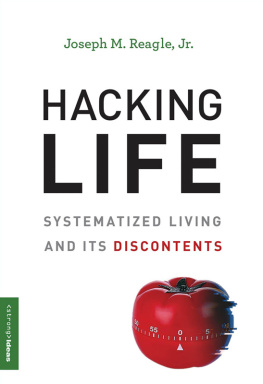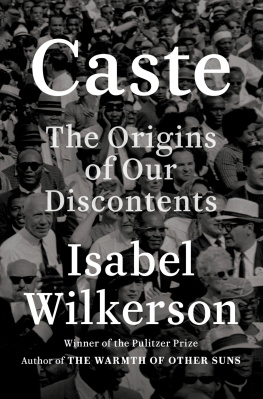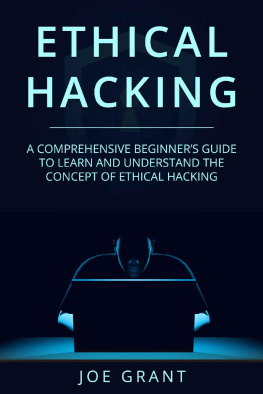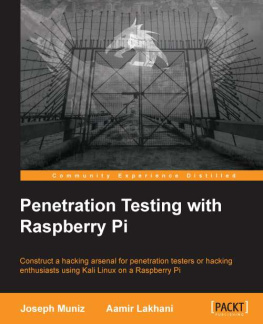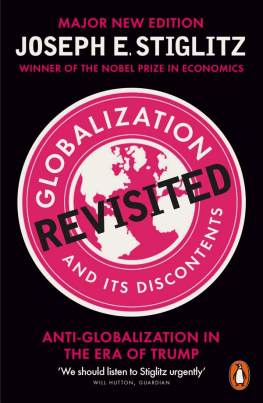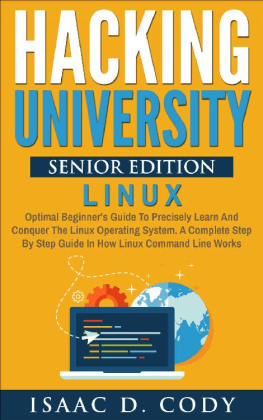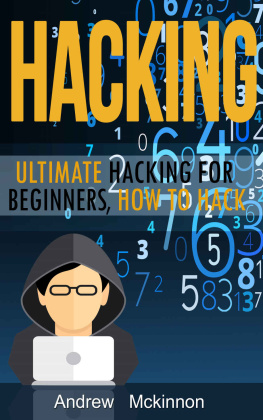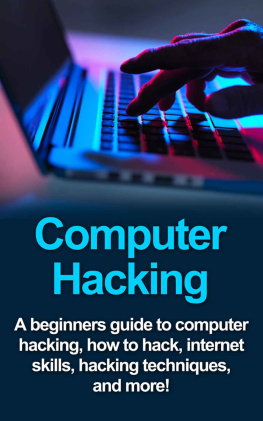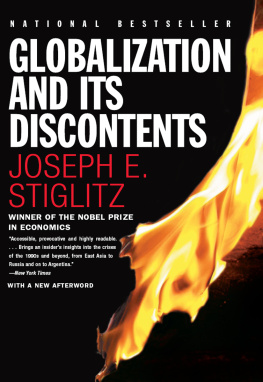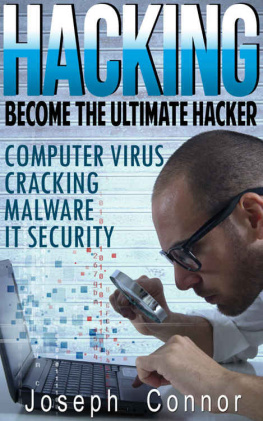Joseph M. Reagle Jr - Hacking Life: Systematized Living and Its Discontents (Strong Ideas)
Here you can read online Joseph M. Reagle Jr - Hacking Life: Systematized Living and Its Discontents (Strong Ideas) full text of the book (entire story) in english for free. Download pdf and epub, get meaning, cover and reviews about this ebook. year: 0, publisher: MIT Press, genre: Science. Description of the work, (preface) as well as reviews are available. Best literature library LitArk.com created for fans of good reading and offers a wide selection of genres:
Romance novel
Science fiction
Adventure
Detective
Science
History
Home and family
Prose
Art
Politics
Computer
Non-fiction
Religion
Business
Children
Humor
Choose a favorite category and find really read worthwhile books. Enjoy immersion in the world of imagination, feel the emotions of the characters or learn something new for yourself, make an fascinating discovery.
- Book:Hacking Life: Systematized Living and Its Discontents (Strong Ideas)
- Author:
- Publisher:MIT Press
- Genre:
- Year:0
- Rating:3 / 5
- Favourites:Add to favourites
- Your mark:
- 60
- 1
- 2
- 3
- 4
- 5
Hacking Life: Systematized Living and Its Discontents (Strong Ideas): summary, description and annotation
We offer to read an annotation, description, summary or preface (depends on what the author of the book "Hacking Life: Systematized Living and Its Discontents (Strong Ideas)" wrote himself). If you haven't found the necessary information about the book — write in the comments, we will try to find it.
Hacking Life: Systematized Living and Its Discontents (Strong Ideas) — read online for free the complete book (whole text) full work
Below is the text of the book, divided by pages. System saving the place of the last page read, allows you to conveniently read the book "Hacking Life: Systematized Living and Its Discontents (Strong Ideas)" online for free, without having to search again every time where you left off. Put a bookmark, and you can go to the page where you finished reading at any time.
Font size:
Interval:
Bookmark:
Ideas Series
Edited by David Weinberger
The Ideas Series explores the latest ideas about how technology is affecting culture, business, science, and everyday life. Written for general readers by leading technology thinkers and makers, books in this series advance provocative hypotheses about the meaning of new technologies for contemporary society.
The Ideas Series is published with the generous support of the MIT Libraries.
Hacking Life: Systematized Living and Its Discontents, Joseph M. Reagle Jr.
The Smart Enough City: Putting Technology in Its Place to Reclaim Our Urban Future, Ben Green
Hacking Life
Systematized Living and Its Discontents
Joseph M. Reagle Jr.
The MIT Press
Cambridge, Massachusetts
London, England
2019 Massachusetts Institute of Technology
All rights reserved. No part of this book may be reproduced in any form by any electronic or mechanical means (including photocopying, recording, or information storage and retrieval) without permission in writing from the publisher.
This book was set in Stone Serif Medium by Westchester Publishing Services. Printed and bound in the United States of America.
Library of Congress Cataloging-in-Publication Data
Names: Reagle, Joseph Michael, author.
Title: Hacking life : systematized living and its discontents / Joseph M. Reagle Jr.
Description: Cambridge, MA : MIT Press, [2019] | Series: Strong ideas | Includes bibliographical references and index.
Identifiers: LCCN 2018028561 | ISBN 9780262038157 (hardcover : alk. paper)
Subjects: LCSH: Technological innovations--Social aspects. | Self-help techniques--Social aspects. | Quality of life. | Lifestyles.
Classification: LCC HM851 .R432 2019 | DDC 303.48/3--dc23 LC record available at https://lccn.loc.gov/2018028561
To Momwho taught me my first hack of tying shoes
Contents
List of Illustrations
.
Processing workflow diagram from David Allen, Getting Things Done: The Art of Stress-Free Productivity (New York: Penguin, 2001), 32.
. Used with permission.
.
Gini Laurie, Homemaking Problems & Solutions, 1968, Toomey J Gazette. Used with permission from Post-Polio Health International.
Seth Roberts on treadmill desk; found at CalorieLab.com.
.
From Michael Taft, The Mindful Geek: Mindfulness Meditation for Secular Skeptics (Kensington, CA: Cephalopod Rex Publishing, 2015), 11.
Acknowledgments
All of us have a little life hacker in us. I have a fair amount. My thinking strongly tilts toward the rational style. When I write, I work in chunks, separated by breaks. To keep myself accountable, I track my daily words written and hours on task. I dont like clutter and do like to keep things organized. Ive struggled with health concerns and the health care system. I use typing-break timers and an unusual keyboard. When I feel a cold coming on, I take a zinc lozengeeven though I suspect it is a placebo. I am far from gregarious, and at big gatherings I create challenges for myself, such as introducing myself to three strangers. I am an anxious person and find levity in Marcus Aurelius and calm in a decade-plus mindfulness practice. I am also a white male with a computer science degree: true to type, so far. However, I dont track much else and have no desire or expectation of uploading myself into a computer. If forced to choose between Soylent (soy-based), Huel (oat-based), and MealSquares (brownie-like), I prefer Huel, but would much rather have a peanut-butter-and-jelly sandwich.
I took on this project to better understand life hacking given that I find it both compelling and, at times, concerning. What I learned is the focus of this book, but I dont conclude that this self-help for the digital age is wholly helpful or harmful, or even novel. Its more complicated than that, as are the stories of those who share the hacking mind-set.
I extend my thanks to those who shared their motivations, practices, and hesitations in hacking life. Most were enthusiasts, but this doesnt mean they were without their own questions and concerns. Indeed, so much of life hacking is an experiment. I apologize that a few the people I spoke with dont appear in the following pages, but my discussions with them still informed my understanding and writing; this includes Jon Cousins, Maggie Delano, Awais Hussain, and others who wished to remain anonymous.
Between my sources and those who read drafts are those who answered factual questions or reviewed sections of prose. These are people whom I followed online or in print and who helped me get closer to getting their stories right. This includes Danny OBrien, Danny Reeves, Bethany Soule, Richard Sprague, Gina Trapani, Tynan, Amy Webb, and Nick Winter. Thank you.
Most importantly, there are those who helped me with the manuscript itself.
David Weinberger is the editor of the Ideas Series at the MIT Press, and he provided invaluable feedback toward the books development. Im a fan of his books, so I am lucky to have had his help crafting this books focus and prose. David has shown me many kindnesses over the years, and it was a joy to collaborate with himwe also both write in Markdown. I am thrilled to be part of this series and to have this book published in print and online under a Creative Commons license. Gita Devi Manaktala, editorial director at the MIT Press, patiently answered my many questions. Michael Harrup and Kathleen Caruso were thorough copyeditors. Other folks at MIT Press who also helped include Kyle Gipson, Gabriela Bueno Gibbs, Judy Feldmann, Victoria Hindley, Sean Reilly, and Michael Sims. I am sure there are others.
I am indebted to a handful of scholars. I dont think anyone usually enjoys reading PhD dissertations, but I read Matt Thomass excellent Life Hacking: A Critical History, 20042014 with rapt attention. Alongside Joey Daouds 2010 documentary, You 2.0A Documentary on Life Hacking, Thomass work is an early and important treatment of this topic. Thomas also gave me feedback on my initial efforts. Natasha Schll read the whole manuscript and also helped with a suggestion toward the title of the book. Rebecca Jablonsky reviewed the introduction and chapter on health hacking. Meryl Alper, my office neighbor at Northeastern University, kindly shared her expertise and sources on cognitive diversity. Bess Williamson shared her work on the importance of the disability communitys history of hacking. Benjamin Hunnicutt corresponded with me about ancient and medieval notions of procrastination. I also received useful feedback from anonymous peer reviewers.
Thanks also to the friends who shared their time with me. Valerie Aurora and Noam Cohen read the whole manuscript and, among other things, independently pushed me to be more rigorous about hacker ethics. Alex Censullo, a former student, also read it all and noted a number of rough spots needing refinement. Amy Gilson made good suggestions on the chapter on relationships.
Finally, Nora Schaddelee read drafts of each chapter. I can only hope my bread baking provides some sort of redress. Im also grateful when Casper reminds its time for a computer breakwith a nudge to my calf to shepherd me along.
Mark Rittmans home is a web of sensors and control. Filaments of data pass between his house, his body, and the server in his garage. Door, motion, and temperature sensors monitor his environs. His iPhone and health band monitor him. Everything is logged for analysis, and controlling the lighting, temperature, and music is as easy as a request to Siri. With the addition of his latest gadget, the iKettle, Rittman hoped to ask Siri for a cup of tea. Better yet, he wanted to add the kettle to an automated morning routine: when the health band on his wrist noticed he was awake, it could alert the house to turn up the heat and lighting downstairs and have the kettle ready for when he got out of the shower. Unfortunately, Rittman had a hard time getting the gadget online, as he tweeted to the thousands following his saga: 3 hrs later and still no tea. Mandatory recalibration caused wifi base-station reset. When he did get it online, the kettle did not work with his other devices: To get my iKettle to actually work with Siri I had to hack this integration together myself. He continued to tweet about this process, and when he finally succeeded, his story went global, starting with a report in
Font size:
Interval:
Bookmark:
Similar books «Hacking Life: Systematized Living and Its Discontents (Strong Ideas)»
Look at similar books to Hacking Life: Systematized Living and Its Discontents (Strong Ideas). We have selected literature similar in name and meaning in the hope of providing readers with more options to find new, interesting, not yet read works.
Discussion, reviews of the book Hacking Life: Systematized Living and Its Discontents (Strong Ideas) and just readers' own opinions. Leave your comments, write what you think about the work, its meaning or the main characters. Specify what exactly you liked and what you didn't like, and why you think so.

